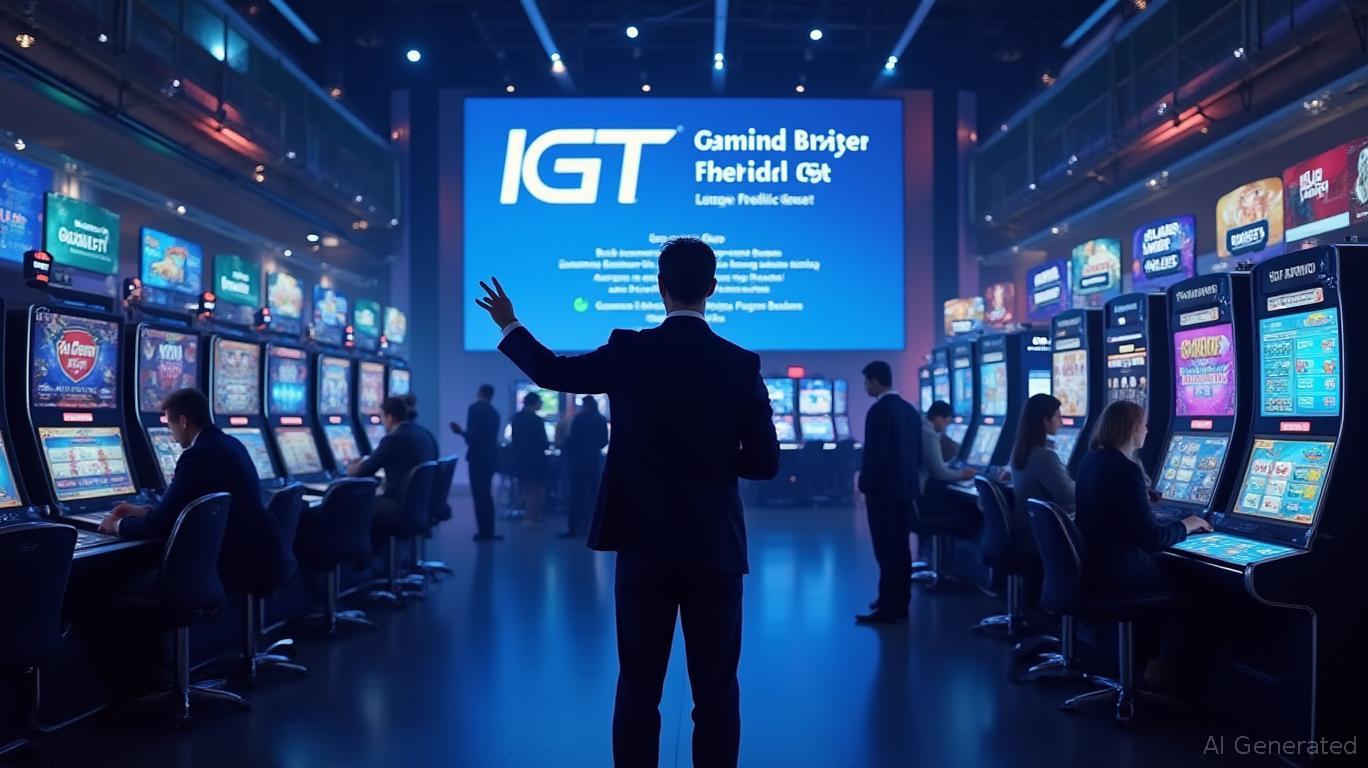Edwin FosterTuesday, Jul 1, 2025 3:44 pm ET
![]() 28min read
28min read
The consolidation of International Game Technology (IGT) and Everi Holdings under Apollo Global Management’s ownership marks a defining moment in the evolution of the gaming industry. By combining IGT’s legacy as a leader in land-based gaming with Everi’s expertise in financial technology (FinTech) and digital solutions, Apollo has engineered a vertically integrated powerhouse positioned to dominate both traditional and emerging markets. This deal, finalized in July 2025, is not merely a financial transaction but a strategic realignment of assets to capitalize on secular trends in gaming digitization, cross-border expansion, and cashless transaction ecosystems.
Strategic Synergy: The Power of Vertical Integration
The merged entity’s structure—divided into three business units: Gaming, Digital, and FinTech—is designed to unlock cross-industry growth opportunities.
- Gaming: This unit retains IGT’s core competency in land-based slot machines, systems, and content. With Apollo’s capital, it can accelerate innovation in next-gen gaming technology, such as AI-driven personalization and immersive VR experiences.
- Digital: Here, the integration of IGT’s iGaming platforms with Everi’s digital solutions creates a unified offering for online betting, sports wagering, and player engagement tools. The global iGaming market, projected to grow at a 10% CAGR through 2030, offers a clear runway for this segment.
- FinTech: Everi’s cash access solutions, loyalty programs, and integrated financial services address a critical gap in the industry: enabling seamless cashless transactions and loyalty ecosystems. This unit could also expand into adjacent markets like blockchain-based payments or crypto integration.

The synergy potential is stark. Cross-selling opportunities abound: a casino operator could purchase IGT slot machines, adopt its digital betting platform, and use Everi’s cashless payment systems—all under one roof. This vertical integration reduces fragmentation, lowers costs, and enhances the customer experience, creating a defensible moat against competitors.
Leadership Continuity: A Stabilizing Pillar
The leadership transition plan is a masterstroke. Nick Khin, IGT’s current CEO, will serve as interim leader until Hector Fernandez assumes the role in Q4 2025. Fernandez, a seasoned executive with experience in global gaming and digital ventures, brings credibility and vision to the role. Critically, Khin’s subsequent role as head of the Gaming unit ensures institutional knowledge remains embedded, while Fernandez’s arrival signals a forward-looking shift toward tech-driven innovation.
This dual-track approach minimizes disruption and provides continuity during the integration phase. Khin’s familiarity with IGT’s legacy systems and Fernandez’s expertise in scaling digital businesses create a balanced leadership structure. Investors, often wary of post-merger uncertainty, can take comfort in this deliberate transition.
Market Dominance Through Global Trends
The merger positions IGT to exploit three megatrends:
1. Gaming Digitization: The shift from land-based to digital platforms is irreversible. By 2030, 30% of global gaming revenue could come from online channels, per industry estimates.
2. Cross-Border Expansion: With a unified offering, IGT can penetrate markets like Asia, where iGaming is booming, and Europe, where regulatory frameworks for sports betting are liberalizing.
3. Cashless Transactions: The rise of digital wallets and blockchain-based systems is reshaping how players engage. Everi’s FinTech unit could become a key enabler here, reducing operational friction for casinos and betting operators.
Risks and Mitigation
Regulatory hurdles, talent retention, and integration costs are legitimate concerns. However, Apollo’s deep expertise in managing complex consolidations—evident in its $4.8 billion acquisition of Scientific Games in 2020—suggests it can navigate these challenges. Additionally, the transaction’s all-cash structure and regulatory approvals secured to date reduce execution risk.
Investment Thesis: A Long-Term Play
For investors, the case for IGT hinges on its ability to realize synergies and capitalize on its new scale. The company’s repositioning as a full-stack gaming solutions provider—combining hardware, software, and financial services—gives it a unique competitive edge.
- Valuation: At a price-to-EBITDA multiple of 8x (based on projected 2025 earnings), IGT trades at a discount to peers like Aristocrat (12x) and Scientific Games (10x), reflecting integration risks. But post-synergy earnings could push this multiple higher.
- Catalysts: Fernandez’s arrival in Q4 2025 and the first earnings report under his leadership will be pivotal. A strong showing in digital revenue growth or cross-selling metrics could re-rate the stock.
- Risk-Adjusted Return: While short-term volatility is possible, the long-term tailwinds of digitization and global expansion justify a position in growth-oriented portfolios.
In conclusion, Apollo’s $6.3 billion bet on IGT is a shrewd move to build a tech-driven gaming titan. The strategic alignment of complementary assets, coupled with a leadership transition that balances continuity and innovation, positions IGT to dominate a $200 billion global gaming market. For investors seeking exposure to a sector in transition, this merger offers a compelling opportunity to back a well-capitalized, strategically agile player.
Recommendation: Consider a gradual build of a long position in IGT ahead of Q4’s leadership transition, with a focus on long-term appreciation.
